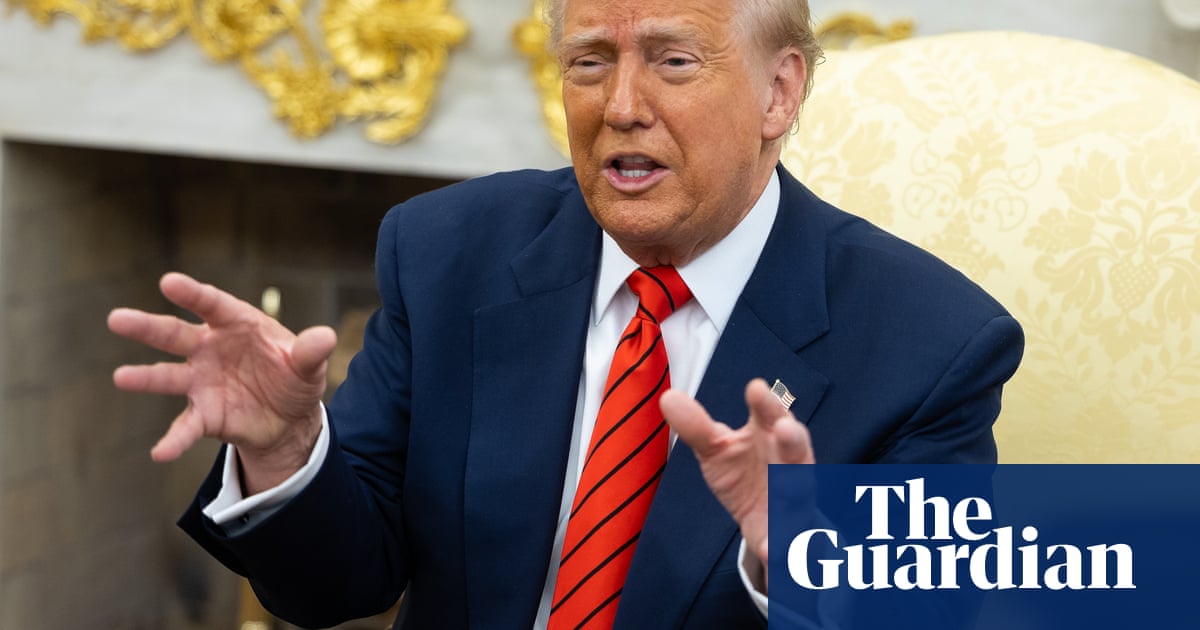Donald Trump has hailed a “total reset” in US-China trade relations after the first day of talks between top American and Chinese officials in Geneva aimed at defusing atrade warsparked by his tariff rollout.
The US president praised the “very good” discussions and deemed them “a total reset negotiated in a friendly, but constructive, manner”.
“We want to see, for the good of bothChinaand the U.S., an opening up of China to American business,” he posted on his Truth Social platform early on Sunday, adding: “GREAT PROGRESS MADE!!!” He did not elaborate on the progress.
Earlier, top US and Chinese officials wrapped up the first day of talks in the Swiss city aimed at de-escalating tensions that threaten to hammer the global economy. Negotiations were expected to continue on Sunday, a source close to the discussions said.
China’s vice-premier, He Lifeng, met for about eight hours with US treasury secretary, Scott Bessent, and US trade representative, Jamieson Greer, in their first face-to-face meeting since the world’s two largest economies heaped tariffs well above 100% on each other’s goods.
Trump’s tariffs imposed on China this year currently total 145%, with cumulative US duties on some Chinese goods reaching 245%. China has slapped retaliatory levies of 125% on US goods, cementing what appears to be a near trade embargo between the two countries
Neither side made any statements afterwards about the substance of the discussions nor signalled any specific progress towards reducing the crushing tariffs as meetings at the residence of Switzerland’s ambassador to the UN concluded about 8pm local time (1800 GMT).
Bessent, Greer and He were meeting in Geneva after weeks of growing tensions prompted by Trump’s tariff blitz starting in February and retaliation from Beijing that has brought nearly $600bn in annual bilateral trade to a virtual standstill. The trade dispute, combined with Trump’s decision last month to impose duties on dozens of other countries, has disrupted supply chains, unsettled financial markets and stokedfears of a sharp global downturn.
The location of the talks in the Swiss diplomatic hub was never made public. However, witnesses saw both delegations returning after a lunch break to the gated UN ambassador’s villa in Cologny.
Earlier, US officials including Bessent and Greer smiled as they left their hotel on the way to the talks. Bessent declined to speak to reporters. At the same time, Mercedes vans with tinted windows were seen leaving a hotel where the Chinese delegation was staying.
Washington is seeking to reduce its $295bn goods trade deficit with Beijing and persuade China to renounce what the US says is a mercantilist economic model and contribute more to global consumption. Beijing has pushed back against what it sees as external interference and wants Washington to lower tariffs and clarify what it wants China to buy more of.
China’s official Xinhua news agency said in a commentary on Saturday that the US’s “reckless abuse of tariffs” had destabilised the global economic order, but added that the negotiations represented “a positive and necessary step to resolve disagreements and avert further escalation”.
Economic analysts have low expectations of a breakthrough. Trump said on Friday that an 80% tariff on Chinese goods “seems right”, suggesting for the first time a specific alternative to the 145% levies he has imposed on Chinese imports.
He has suggested the discussions were initiated by China. Beijing said the US requested the discussions and that China’s policy of opposing US tariffs had not changed.
The US commerce secretary, Howard Lutnick, told Fox News on Friday: “The president would like to work it out with China. He would like to de-escalate the situation.”
Trump’s press secretary, Karoline Leavitt, clarified that the US would not lower tariffs unilaterally and that China would need to make concessions.
The Swiss economy minister, Guy Parmelin, met both parties in Geneva on Friday and said the fact the talks were taking place was already a success.
“If a road map can emerge and they decide to continue discussions, that will lower the tensions,” he told reporters on Friday, saying talks could continue into Sunday or even Monday.
